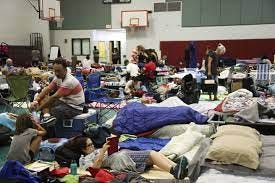Saving North Carolina’s Public Education System
How to Stop Those Who Would Betray the State’s Children and Future
As part of its work on public education in America, Civic Way is taking a closer look at one state—North Carolina. This is the fourth essay in Civic Way’s series on North Carolina’s primary and secondary education system (see the last essay). The author, Bob Melville, is the founder of Civic Way, a nonprofit dedicated to good government, and a management consultant with over 45 years of experience improving public agencies.
Let us make education brave and preventive. We shall one day learn to supersede politics by education... – Ralph Waldo Emerson
The Threats to North Carolina’s Public Education System
North Carolina’s public education crisis has many causes and symptoms. We will describe these ills, and how they threaten the future of the public education system in the next several essays. The first two threats involve top-down political interference and the underappreciated community value of public schools.
1. High- Handed, Hyper-Partisan Legislative Interference.
The NCGA has eviscerated the long-standing bipartisan approach to public education in North Carolina. In its zeal to politicize public education, it has passed laws to impede transgender healthcare, bar transgender athletes from sports, embolden adults to out LGBTQ+ children and make local school board elections partisan. And it has considered bills that would expedite book bans, accelerate lawsuits against school boards and make the SBE an elective body.[i]
The legislative lust for controlling the state’s education agenda appears insatiable. With a veto-proof majority, they have enacted canned—and ill-conceived—American Legislative Exchange Council (ALEC) bills with little public input[ii]. They have emasculated the SBE’s authority over charter schools[iii]. They seem intent on seizing control of state curriculum standards and have neutralized the Superintendent of Instruction as a public education an advocate[iv]. They micromanage counties and local school districts.
Without clear standards, partisanship could contaminate the state’s charter school selection process. The NCGA recently created the new Charter Review Board to tighten its grip on the charter school selection process. Last session, two GOP legislators introduced a bill to overturn the SBE’s rejection of a subpar charter school in Union County. The selection of politically connected entities like the Roger Bacon Academy to run charter schools is another signal that this issue merits more scrutiny.
The political rhetoric has been particularly disturbing. Far too many politicians have escalated their attacks on public education for political ends. They and their acolytes have manufactured controversies from slogans like wokeness, grooming and Critical Race Theory[v]. They have exploited public anxieties surrounding the pandemic to divide school boards and communities. They have underfunded schools and then cynically touted public-school problems to sell private school vouchers.
2. Ignoring the Cultural Value of Public Schools (Especially in Small Counties).
Despite the importance of North Carolina’s urban centers, the state remains a quilt of mid-sized metros and small towns. Charlotte and Raleigh-Durham are the state’s best known economic engines, but mid-sized cities like Asheville, Hickory, Greensboro, Winston-Salem, Fayetteville and Wilmington have become economic forces in their own right. And, while half of the state’s students reside in the 12 largest LEAs, North Carolina has the nation’s second-highest rural student population.
Many elected officials, including current NCGA leaders, don’t seem to fully appreciate what public schools mean to their communities. In many counties, especially small, rural counties, public schools are much more than centers of learning, they are vital community hubs[vi]. And they are for many urban areas as well, replacing traditional community institutions that have disappeared.
Public schools have been—and should always be—integral to the vitality, growth, and competitiveness of our communities. Centers of character building not just job training and college preparation. Incubators of good citizenship not just reading, math and science skills. The foundation of vibrant, diverse and democratic communities not just a place where students chase grades and test scores.
The school reform effort brought many benefits, but it’s intense focus on testing may have induced some amnesia. We forgot about the intangibles of public schools. We forgot that in many counties, public schools are anchor institutions. After-school care, summer camps, Friday night football games, community events, potluck dinners and emergency shelters. In many counties, the largest employer.
The state’s outmoded funding model contributes to this problem. Its allotment system emphasizes student enrollment to the virtual exclusion of community needs. It allocates only three percent of public-school funds to LEAs based on district factors. The model, with its rigid allotment caps, also hinders effective LEA planning and budget management[vii]. The funding model does little to encourage LEAs to promote school choice in their respective communities.
In our next essay, we will continue with our discussion of threats facing North Carolina’s public education system. More specially, we will discuss funding and childcare issues.





Good article Bob. Since the beginning, the charter school targets for the for private sector has been the rural counties. Roger Bacon schools have an interesting history in the NC's south east.
Hopefully, your outing of our public schools vulnerability to the overreach of the NC Legislature.